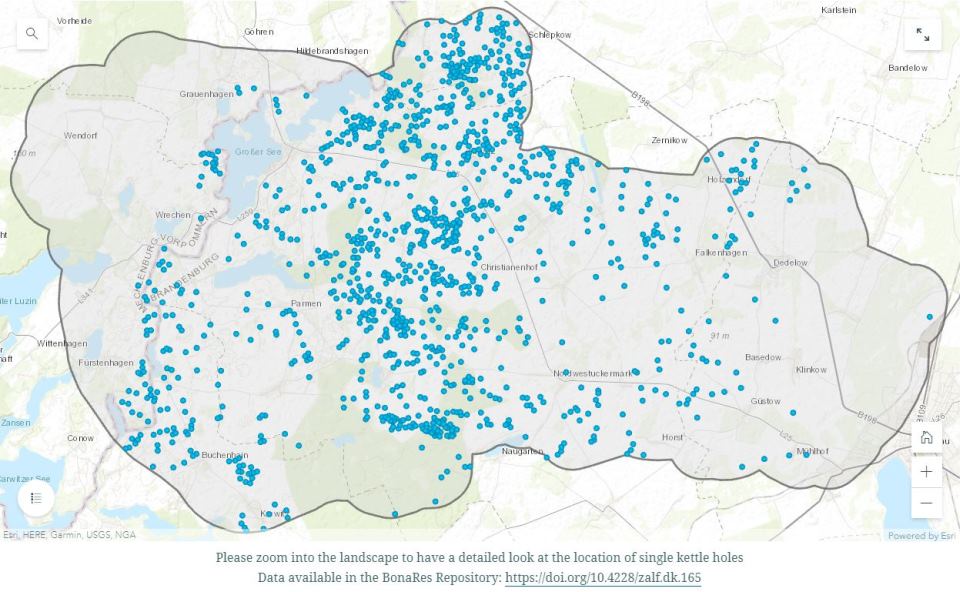Developing sustainable land use schemes which account for food security and human welfare as well as for healthy soils, good water and air quality and rich and stable biodiversity requires a sound understanding of manifold interactions of natural and anthropogenic processes. Findings from lab and small scale field studies and models need to be checked and to be refined at the landscape scale. Modern data analysis techniques, e.g., based on artificial intelligence approaches, are a way to extract meaningful information from large and heterogeneous data, including classical scientific field work and sensor systems, standard tractor-mounted sensors, geophysics, satellite and UAV-based remote sensing, etc.
In order to achieve the sustainable development goals regarding sustainable crop production, mitigation of and adaption to climate change, and maintaining soil fertility and biodiversity in agricultural landscapes, experimental research at the landscape-scale is needed. In 2011, ZALF researchers therefore established the AgroScapeLab Quillow (ASLQ), a landscape laboratory located in the Quillow catchment (NE Germany; approx. 160 km2).
The
AgroScapeLab Quillow (ASLQ) has been established to bring together different disciplines and research activities in order to elucidate complex landscape dynamics as a necessary prerequisite to meet current and future global change challenges.
GIS Story
A
GIS storymap is available for the ASLQ and provides further information on the research area, core research results and distinctive features of the AgroScapeLab Quillow.
is available for the ASLQ and provides further information on the research area, core research results and distinctive features of the AgroScapeLab Quillow.

Location of single kettle holes in the AgroScapeLab Quillow (ASLQ)

